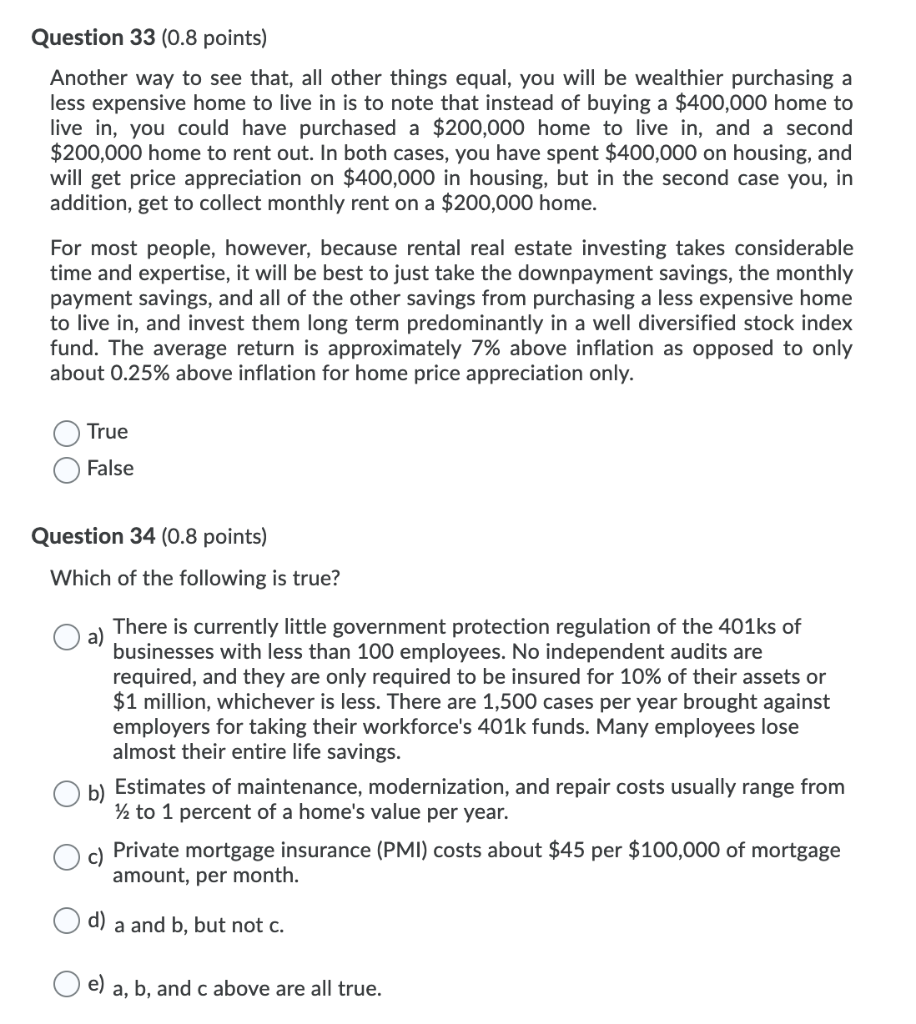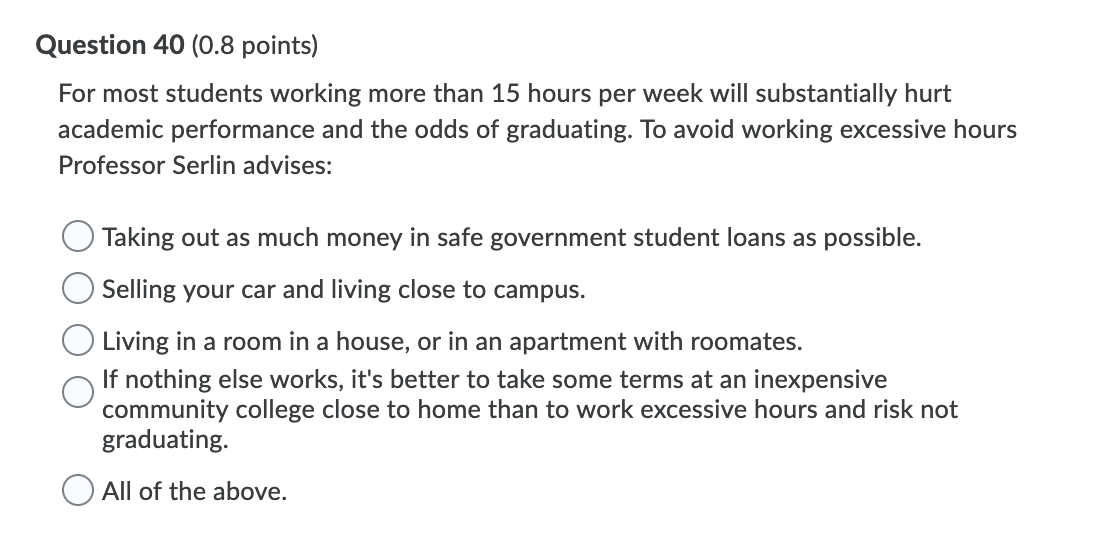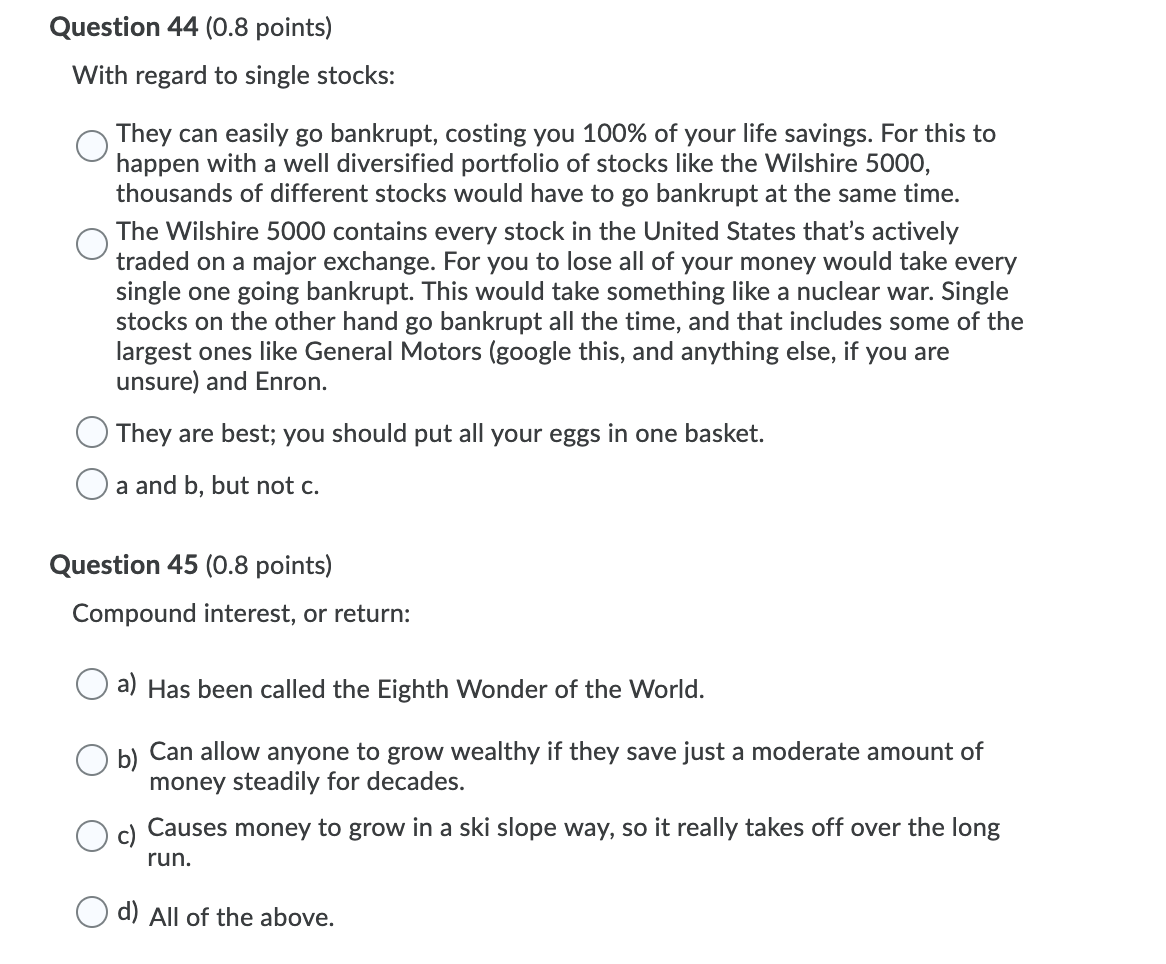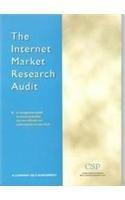


Question 33 (0.8 points) Another way to see that, all other things equal, you will be wealthier purchasing a less expensive home to live in is to note that instead of buying a $400,000 home to live in, you could have purchased a $200,000 home to live in, and a second $200,000 home to rent out. In both cases, you have spent $400,000 on housing, and will get price appreciation on $400,000 in housing, but in the second case you, in addition, get to collect monthly rent on a $200,000 home. For most people, however, because rental real estate investing takes considerable time and expertise, it will be best to just take the downpayment savings, the monthly payment savings, and all of the other savings from purchasing a less expensive home to live in, and invest them long term predominantly in a well diversified stock index fund. The average return is approximately 7% above inflation as opposed to only about 0.25% above inflation for home price appreciation only. True False Question 34 (0.8 points) Which of the following is true? There is currently little government protection regulation of the 401ks of businesses with less than 100 employees. No independent audits are required, and they are only required to be insured for 10% of their assets or $1 million, whichever is less. There are 1,500 cases per year brought against employers for taking their workforce's 401k funds. Many employees lose almost their entire life savings. b) Estimates of maintenance, modernization, and repair costs usually range from 22 to 1 percent of a home's value per year. Private mortgage insurance (PMI) costs about $45 per $100,000 of mortgage amount, per month. d) a and b, but not c. a, b, and c above are all true. Question 40 (0.8 points) For most students working more than 15 hours per week will substantially hurt academic performance and the odds of graduating. To avoid working excessive hours Professor Serlin advises: Taking out as much money in safe government student loans as possible. Selling your car and living close to campus. O Living in a room in a house, or in an apartment with roomates. If nothing else works, it's better to take some terms at an inexpensive community college close to home than to work excessive hours and risk not graduating. O All of the above. Question 44 (0.8 points) With regard to single stocks: They can easily go bankrupt, costing you 100% of your life savings. For this to happen with a well diversified portfolio of stocks like the Wilshire 5000, thousands of different stocks would have to go bankrupt at the same time. The Wilshire 5000 contains every stock in the United States that's actively traded on a major exchange. For you to lose all of your money would take every single one going bankrupt. This would take something like a nuclear war. Single stocks on the other hand go bankrupt all the time, and that includes some of the largest ones like General Motors (google this, and anything else, if you are unsure) and Enron. They are best; you should put all your eggs in one basket. a and b, but not c. Question 45 (0.8 points) Compound interest, or return: a) Has been called the Eighth Wonder of the World. b) Can allow anyone to grow wealthy if they save just a moderate amount of money steadily for decades. Causes money to grow in a ski slope way, so it really takes off over the long run. d) All of the above









